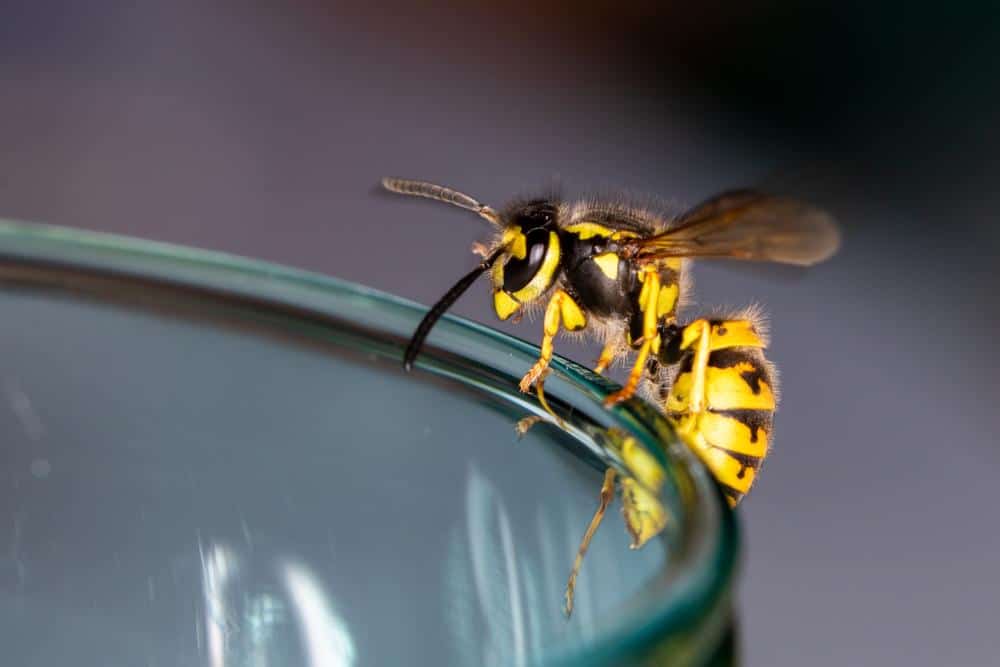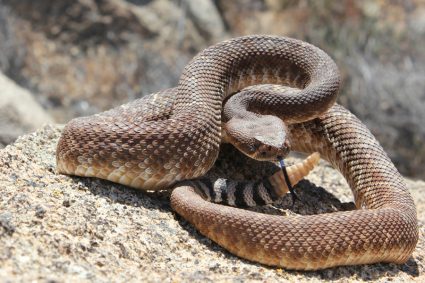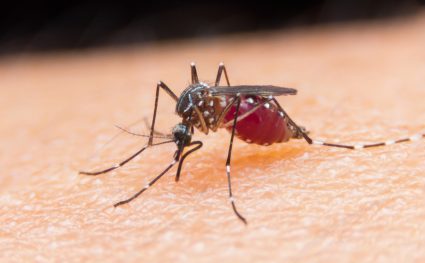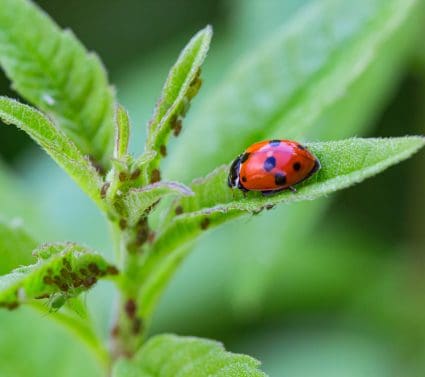
In the world of poultry farming, a common nuisance that many chicken owners face is the presence of wasps in their chicken coops. While chickens may eat wasps and are generally not bothered by them, wasp nests can pose a problem. They can cause stress and discomfort for the birds and in some cases, the wasps can sting the chickens. In this comprehensive guide, we’ll explore multiple solutions to keep wasps out of your chicken coops, ensuring the safety and productivity of your flock.
To keep wasps out of your chicken coops, remove potential nesting sites like old wood piles, brush, and debris. Seal off any holes or gaps in the coop and use natural repellents like peppermint oil, citronella oil, or a vinegar-water mixture. Install physical barriers like nets or wire mesh around the coop and set up wasp traps nearby. If a wasp nest is found, deal with it carefully without using harmful chemicals.
Why Wasps Are Attracted to Chicken Coops
Wasps are attracted to chicken coops for two primary reasons: potential nesting sites and the presence of insects. Old wood piles, brush, and debris around the chicken coop are perfect for building their nests. Besides, since chickens eat insects, the bugs present in the coop can act as a food source for the wasps.
Impact of Wasps on Chickens
While chickens won’t generally be bothered by wasps, as the nests are usually built too high for the chickens to reach, the use of chemical pesticides to eliminate the wasps can affect the health of the chickens. Exposure to these chemicals can lead to symptoms such as difficulty breathing, lethargy, and even death in severe cases.
Preventing Wasp Infestations
To prevent wasps from infesting your chicken coop, it is recommended to remove potential nesting sites, such as old wood piles, brush, and debris, and seal off any holes or gaps in the coop. You can also use natural repellents and install physical barriers.
Natural Repellents
Essential oils like peppermint oil and citronella oil can repel insects, including wasps. You can also plant wasp-repelling plants, such as marigolds, sage, and rosemary, near your chicken coop. A mixture of vinegar and water sprayed around the coop can help keep wasps at bay.
Physical Barriers
Install nets or wire mesh around the coop to prevent wasps from getting in. Ensure the gaps in the netting are small enough to prevent wasps from passing through.
Wasp Traps
You can set up wasp traps near the chicken coop to catch wasps before they have a chance to sting your chickens. These traps can be purchased at most hardware stores or made at home using a bottle filled with meat or fruit to attract and trap the wasps.
Dealing With a Wasp Nest
If you discover a wasp nest in your chicken coop, the first step is to ensure the safety of your chickens by temporarily relocating them. It’s best to deal with the wasp nest in the evening or early morning when the wasps are less active. Wear protective clothing and use a natural solution to spray on the nest. After treating the nest, use a broom or similar long-handled tool to dislodge it and dispose of it in a sealed plastic bag.
Conclusion
Prevention is key when it comes to protecting your chickens from wasps and other pests. Keep the coop clean, free of potential nesting sites, and use traps or other non-toxic methods for controlling wasps. If you need to remove a wasp nest from your chicken coop, do so without using harmful chemicals that could affect the health of your chickens.
With these tips, you can ensure a wasp-free environment for your chickens, leading to happier and more productive poultry farming.
Frequently Asked Questions
What other plants can repel wasps?
Apart from marigolds, sage, and rosemary, other plants that can repel wasps include wormwood, eucalyptus, and spearmint.
How often should I replace the bait in a wasp trap?
The bait in the wasp trap should be replaced every 1-2 weeks or when it dries out. If the trap is full of wasps, it should be emptied and the bait replaced.
Can wasps sting chickens through the netting?
If the netting is properly installed with small enough gaps, it should prevent wasps from getting close enough to the chickens to sting them.
What should I do if my chicken gets stung by a wasp?
If a chicken gets stung by a wasp, monitor the chicken closely for any signs of allergic reaction such as difficulty breathing, swelling, or changes in behavior. In most cases, chickens recover from wasp stings without intervention. However, if the chicken shows severe symptoms, it would be best to consult a veterinarian.
What other pests can pose a threat to my chickens?
Besides wasps, other pests that can pose a threat to chickens include rats, mites, lice, and predators like foxes or raccoons. It’s essential to have a comprehensive pest control plan in place to protect your flock.











